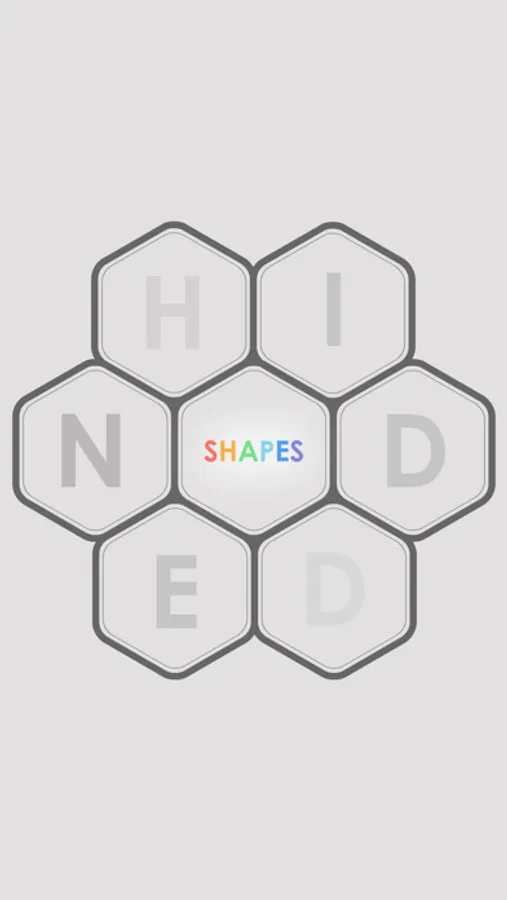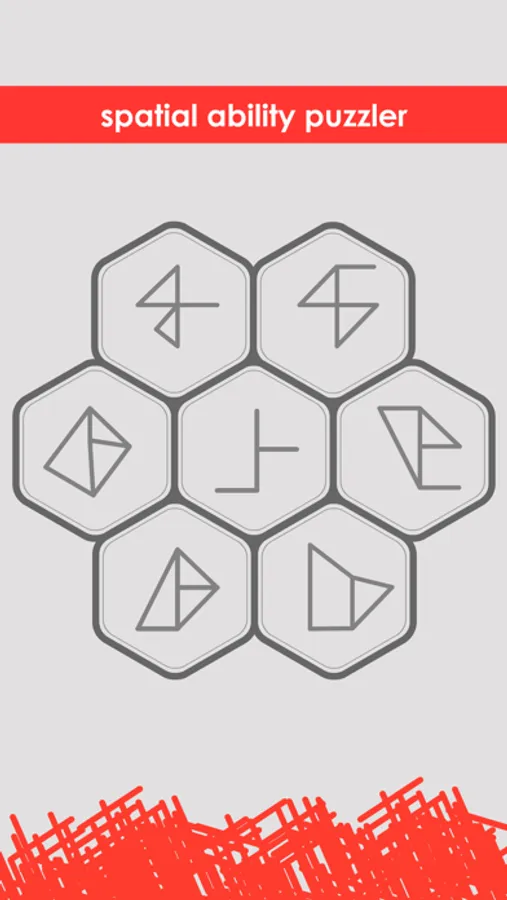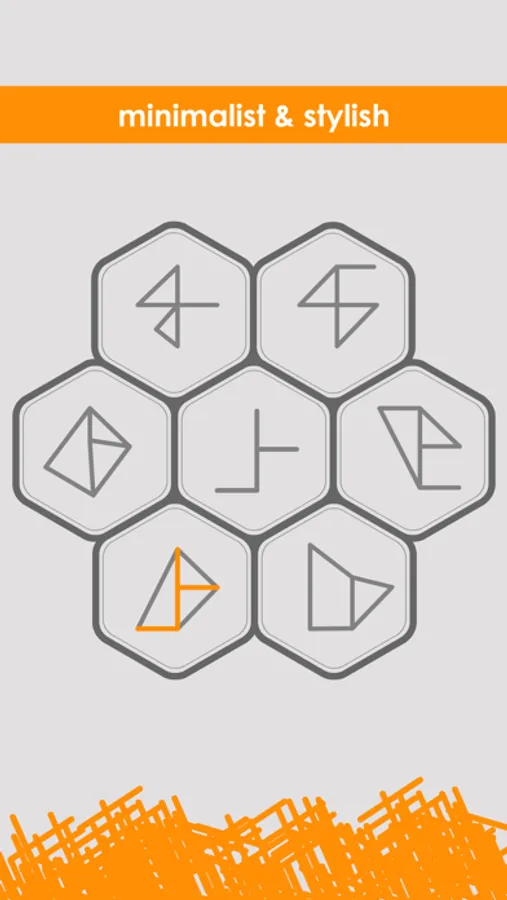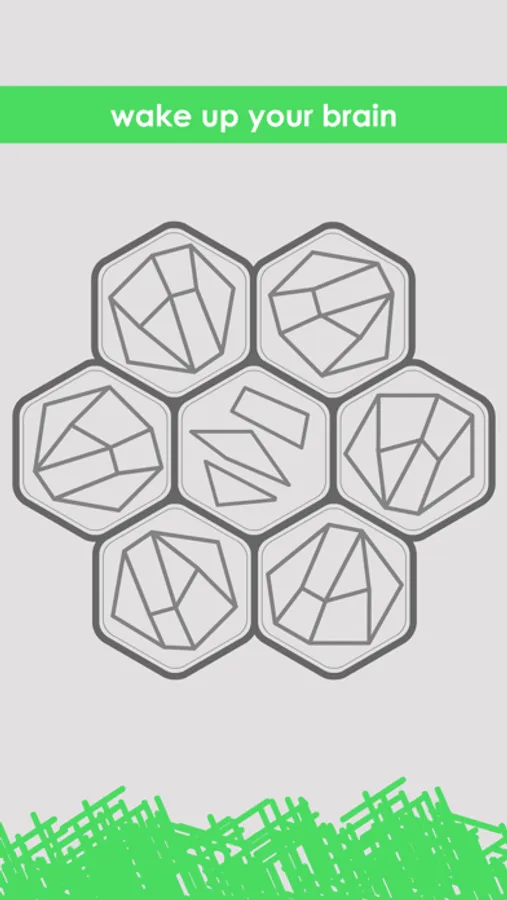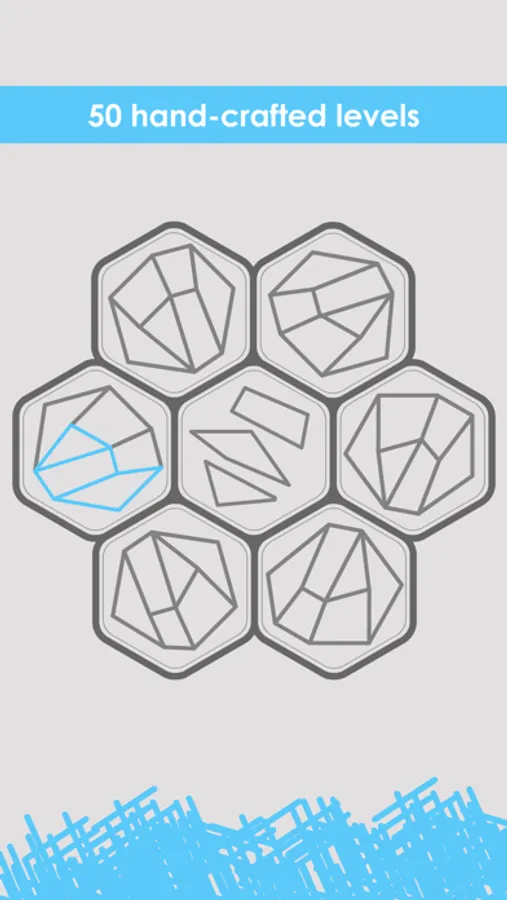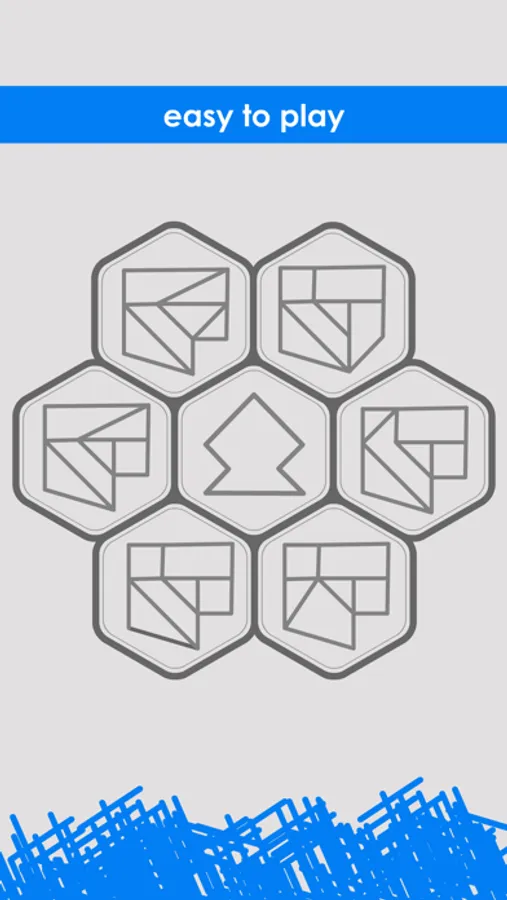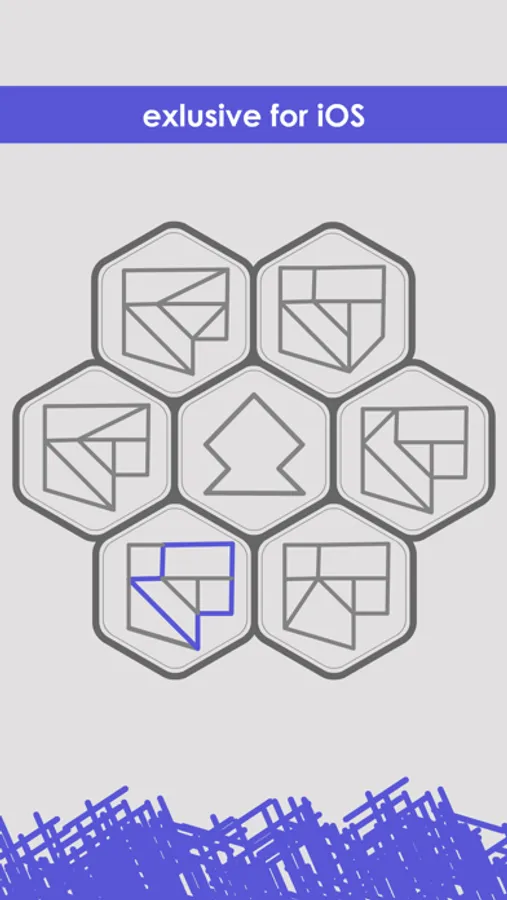In this spatial ability puzzle game, you find hidden shapes within hexagons by analyzing three-dimensional images. Includes 75 levels, relaxing sounds, and cognitive style exercises.
AppRecs review analysis
AppRecs rating 4.1. Trustworthiness 78 out of 100. Review manipulation risk 22 out of 100. Based on a review sample analyzed.
★★★★☆
4.1
AppRecs Rating
Ratings breakdown
5 star
58%
4 star
19%
3 star
8%
2 star
4%
1 star
12%
What to know
✓
Low review manipulation risk
22% review manipulation risk
✓
Credible reviews
78% trustworthiness score from analyzed reviews
✓
High user satisfaction
77% of sampled ratings are 4+ stars (4.1★ average)
About hidden shapes
*** hidden shapes puzzle game is inspired by Embedded Figures Test which was designed by Herman A. Witkin who known as a pioneer of the theory of cognitive styles.***
The Minnesota Paper Form Board Test(Likert) type questions are also added in the game.
hidden shapes is a spatial ability puzzle game. There is no time limit, move limit and points in the game. You just need to find the shape on the centre which is hidden in one of the six hexagons.
hidden shapes is waiting for you to train your spatial ability. Ready?
Features:
◈ Minimalist design
◈ 75 hand-crafted levels
◈ Relaxing music & sounds
◈ Sharpens the mind
◈ Exclusive for iOS
WHAT IS SPATIAL ABILITY?
Spatial ability is "the aptitude needed to mentally process three-dimensional images of objects." (Fleisig et al. 2004).
WHY IS SPATIAL ABILITY IMPORTANT?
"There is evidence which indicates that strong spatial skills are required for achievement in science, technology, engineering and mathematics (STEM) careers. Many people, including science and engineering professors, view such skills as important for success in fields like engineering." (Gutierrez, Dominguez, & Gonzalez, 2015)
CAN SPATIAL ABILITY BE FURTHER DEVELOPED?
"The level of spatial performance someone is capable of may change over time. You are likely to gain in performance through practice, training, and learning, but you may also lose in standing relative to others if they acquire more experience that supports their performance or make more progress in their intellectual development." (Johns Hopkins University, 2018)
If you wish to improve or retain the level of your spatial ability, hidden shapes will be the best option for you.
Witkin, H. A., Oltman, P. K., Raskin, E., & Karp, S. A. (1971). A manual for the embedded figures test. Palo Alto, CA: Consulting Psychologist Press.
Fleisig, R. V., A. Robertson, et al. (2004). Improving the Spatial Visualization Skills of First Year Engineering Students. Inaugural CDEN Design Conference, Montreal, Quebec.
Johns Hopkins University. (2018, August 28). Spatial Ability. Retrieved from http://www.jhu.edu: http://web.jhu.edu/cty/STBguide.pdf
Martin Gutierrez, J., Garcia Dominguez, M., & Roca Gonzalez, C. (2015). Using 3D virtual technologies to train spatial skills in engineering. International Journal of Engineering Education, 31(1), 323-334.
The Minnesota Paper Form Board Test(Likert) type questions are also added in the game.
hidden shapes is a spatial ability puzzle game. There is no time limit, move limit and points in the game. You just need to find the shape on the centre which is hidden in one of the six hexagons.
hidden shapes is waiting for you to train your spatial ability. Ready?
Features:
◈ Minimalist design
◈ 75 hand-crafted levels
◈ Relaxing music & sounds
◈ Sharpens the mind
◈ Exclusive for iOS
WHAT IS SPATIAL ABILITY?
Spatial ability is "the aptitude needed to mentally process three-dimensional images of objects." (Fleisig et al. 2004).
WHY IS SPATIAL ABILITY IMPORTANT?
"There is evidence which indicates that strong spatial skills are required for achievement in science, technology, engineering and mathematics (STEM) careers. Many people, including science and engineering professors, view such skills as important for success in fields like engineering." (Gutierrez, Dominguez, & Gonzalez, 2015)
CAN SPATIAL ABILITY BE FURTHER DEVELOPED?
"The level of spatial performance someone is capable of may change over time. You are likely to gain in performance through practice, training, and learning, but you may also lose in standing relative to others if they acquire more experience that supports their performance or make more progress in their intellectual development." (Johns Hopkins University, 2018)
If you wish to improve or retain the level of your spatial ability, hidden shapes will be the best option for you.
Witkin, H. A., Oltman, P. K., Raskin, E., & Karp, S. A. (1971). A manual for the embedded figures test. Palo Alto, CA: Consulting Psychologist Press.
Fleisig, R. V., A. Robertson, et al. (2004). Improving the Spatial Visualization Skills of First Year Engineering Students. Inaugural CDEN Design Conference, Montreal, Quebec.
Johns Hopkins University. (2018, August 28). Spatial Ability. Retrieved from http://www.jhu.edu: http://web.jhu.edu/cty/STBguide.pdf
Martin Gutierrez, J., Garcia Dominguez, M., & Roca Gonzalez, C. (2015). Using 3D virtual technologies to train spatial skills in engineering. International Journal of Engineering Education, 31(1), 323-334.
